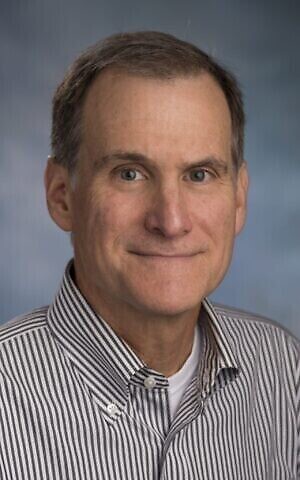Can This Year’s Seder Be Different from Last?
Doctors warn that even with vaccines, there are risks.
A year ago, Atlantans adventurously re-imagined how to hold their Passover seders through either Zoom or in much smaller family gatherings. The community was still figuring out how to accommodate that most unwelcome new guest, the COVID-19 pandemic. This year, they are pros at Zoom meetings or holding services in parking lots or parks.
And it’s a good thing, for despite many of the 65-plus age group already vaccinated, some public health specialists are warning that it’s too soon to return to normal, pre-COVID seders. While not addressing seders specifically, the Centers for Disease Control and Prevention – in its latest guidelines for those vaccinated – appears to be more flexible.
In all other years – before COVID-19 – Passover was the holiday during which extended families gathered from near and far, numbering into the dozens. Atlantans hosted friends. Synagogues held second-night seders.

Last year, communal seders were simply not held. Although some senior citizen institutions are gathering residents who have been vaccinated, at least one doctor is still cautioning against any assemblies of people outside family members who already live together.
“There are no issues with your immediate pod of family members,” stated Dr. Harry Heiman, associate professor in Georgia State University’s School of Public Health. If you want to include additional family members, he suggested that “you calculate on how large and small the family is and the risk factor of each family member, if the kids are in school virtually and if any family member works outside the home. That wouldn’t be unreasonable.”
However, he added, “if you are extending family units to three or four [pods], you’re increasing your risks. Even if many are vaccinated, it’s still not perfect.”
On March 8, the CDC announced its first public health recommendations for fully vaccinated people. Its guidelines are specifically directed towards people who have received two doses of either the Moderna or Pfizer vaccine or one dose of the Johnson & Johnson vaccine. In each case, the recommendation applies to those who are two weeks past their doses.
According to the CDC, fully vaccinated people can:
■ Visit with other fully vaccinated people indoors without wearing masks or physical distancing,
■ Visit with unvaccinated people from a single household who are at low risk for severe COVID-19 disease indoors without wearing masks or physical distancing,
■ Refrain from quarantine and testing following a known exposure if
asymptomatic.
In public, fully vaccinated people, the CDC states, should continue to wear masks and socially distance themselves from others, and still avoid medium- to large-gatherings of people.
Still, the new guidelines are encouraging for those who have completed their vaccination regimens by mid-March. By Passover, they should be past the two weeks required for full effectiveness.

Heiman, however, expresses concern that people will become “too confident” after vaccinations. He believes that people “shouldn’t change their behavior even after the vaccines. A vaccine is both an individual activity and a communal activity.” As an individual activity, a person is protecting him or herself and their family. The communal benefits of people getting vaccinated, he noted, will only really be reached when the country achieves herd immunity or about 75 to 80 percent of the population is either vaccinated or recovered from COVID.
Dr. Anthony Fauci, director of the National Institute of Allergy and Infectious Diseases, said the U.S. might reach herd immunity by late summer.
While that may not satisfy those yearning for their large traditional family seders, there’s always next year.




comments